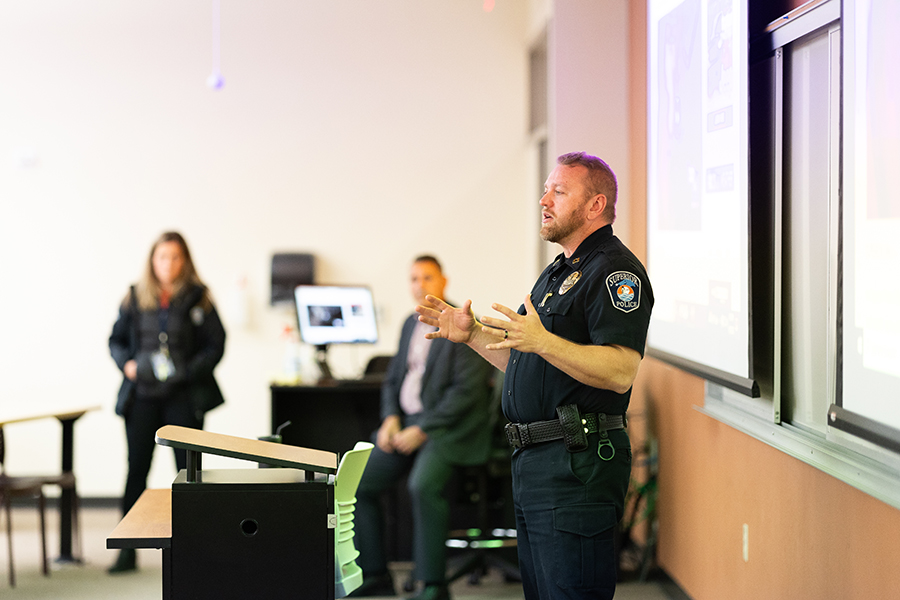TYPE
TOPIC
Recently, the University of Wisconsin-Superior’s Human Behavior, Justice and Diversity Department hosted Pathways to Hope presentations for students, faculty and staff.
Pathways to Hope is a unique pre-booking deflection program that seeks to match needful individuals with substance use treatment and alternatives to incarceration. This program was initially launched in 2018 after a partnership between Superior Police Department (SPD) and UW-Superior legal studies faculty.
“The legal studies program at UW-Superior has been an important arm of Pathways to Hope since Maria Cuzzo helped write the initial grant to jump start Pathways to Hope’s very first year,” said Alli Willingham, UW-Superior assistant teaching professor and legal studies and criminal justice program coordinator.
Since 2019, Willingham continued Cuzzo’s role as the university liaison for Pathways to Hope, including offering students opportunities to engage in service learning and research alongside SPD personnel.
Along with legal studies faculty Meg Chrusciel, Willingham looks forward to exploring how UW-Superior can partner again with SPD to increase the outreach of this unique policing program.
A panel of speakers from Pathways to Hope, included Superior Police Chief Nicholas Alexander, patrol captain Paul Winterscheidt and coordinated response specialist Jen Stank hosting two separate presentations – a high-level presentation that focused on program and policy implementation and evaluation, and an introductory presentation that discussed repurposing police beyond traditional law enforcement methods.
“Pathways to Hope has offered solutions for drug-related crime in the community, as well as showed how policing can be redefined or repurposed,” said Willingham. “It is an excellent example of a needs-based program and an alternative to traditional policing.”
Legal studies majors in attendance had questions about the implementation of the program, including how SPD fielded criticism and pushback from other community groups and officials.
The legal studies program has a collaborative relationship with SPD; Alexander has been an adjunct instructor for nearly six years. In Spring 2024, Alexander will teach CJUS 212 Criminal Investigations and LSTU 210 Criminal Procedure, as well as the three courses required for the university’s certificate program in ethical policing, a specialized microcredential that Alexander has worked with UW-Superior staff to develop and revise for several years.
